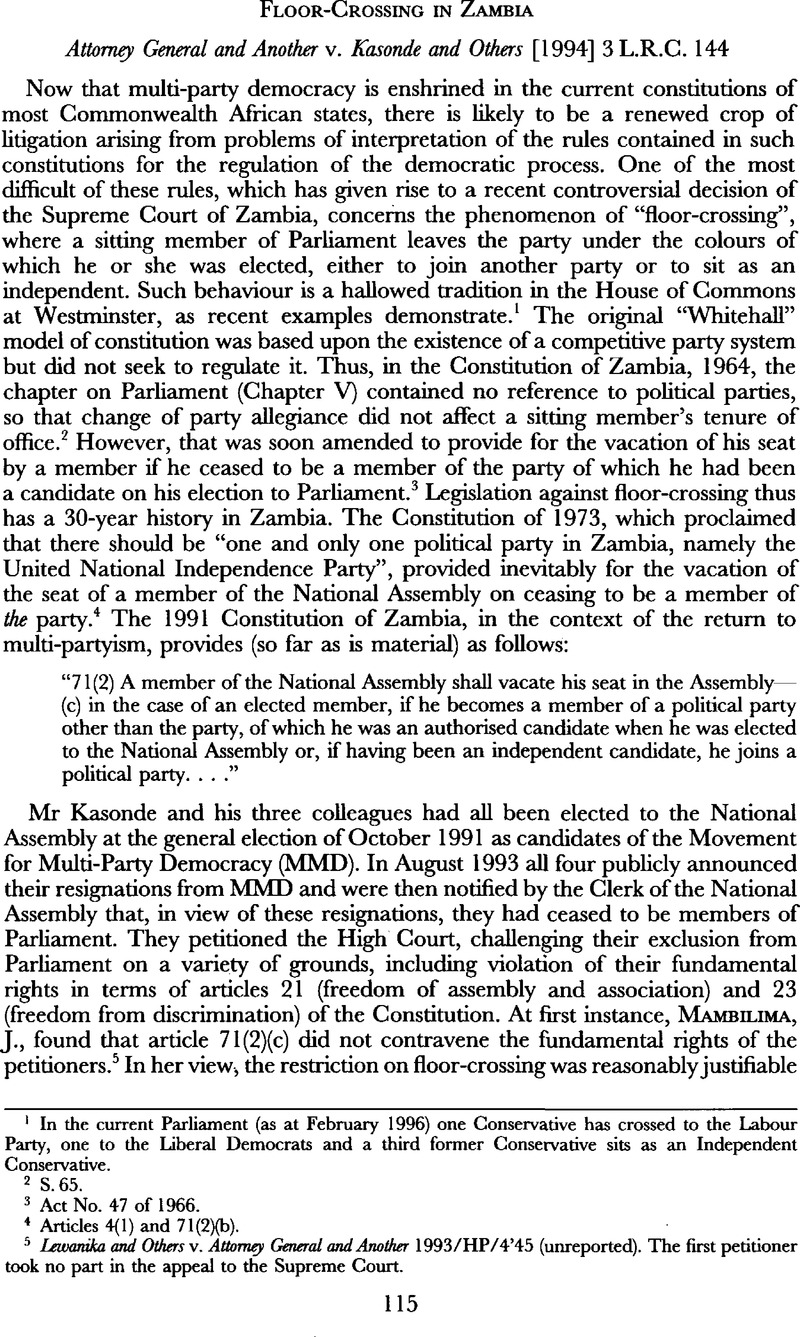
1 In the current Parliament (as at February 1996) one Conservative has crossed to the Labour Party, one to the Liberal Democrats and a third former Conservative sits as an Independent Conservative.
2 S. 65.
3 Act No. 47 of 1966.
4 Articles 4(1) and 71(2)(b).
5 Lewanika and Others v. Attorney General and Another 1993/HP/4’45 (unreported). The first petitioner took no part in the appeal to the Supreme Court.
6 Mambilima, J., distinguished an earlier unreported decision, Lumina and Another v. Attorney General SZC Judgment No. 5 of 1991, Appeal No. 15 of 1990. There the Supreme Court held that, after the repeal of art. 4 allowed the formation of other political parties, fundamental political rights and freedoms were revived in full effect. Therefore, art. 71(2) and other surviving provisions of the 1973 Constitution which restricted the right of individuals to sit in the National Assembly unless they were members of the party was discriminatory in themselves and in their effect.Google Scholar
7 Quoted at [1994] 3 L.R.C. 146 at 159.Google Scholar
8 For an analysis of the relevant Malaysian case-law, see Harding, A. J., “When is a resignation not a resignation? A crisis of confidence in Sabah”, (1995) The Round Table 335 at 353Google Scholar. In the 1979 and abortive 1989 Constitutions of Nigeria, the fundamental right to freedom of association was expressly modified to deprive a sitting member of the right to change parties: see Read, J. S., “Nigeria’s new Constitution for 1992: the third republic”, (1991) 35 J.A.L. 174 at 181.CrossRefGoogle Scholar
9 S. 41(1) of the Constitution of Zimbabwe as amended by Constitution of Zimbabwe Amendment (No. 9) Act, 1990. See Hatchard, J., “The Constitution of Zimbabwe: a new model for Africa?” (1991) 35 J.A.L. 79 at 82.CrossRefGoogle Scholar
10 Article 48(1) and (2). See Federal Convention of Namibia v. Speaker, National Assembly (1994) (1) S. A. 177.Google Scholar
11 S. 43(b). The party list electoral system effectively excluded independent members.
12 Arts. 83(1)(f), (g) and (h), 83(2) and 84.